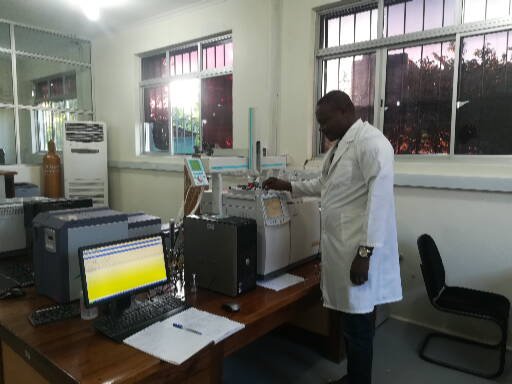A recent study conducted by researchers at Sokoine University of Agriculture (SUA) through the Innovations and Markets for Lake Victoria Fisheries (IMLAF) project in collaboration with other stakeholders has indicated that fish products from Lake Victoria and consumers are safe from toxic chemicals that used by fishing community during fishing activities and storage of fish products.

Dr. Alex Wenaty Ngungulu from the Department of Food Technology, Nutrition and Consumer Sciences of Sokoine University of Agriculture revealed that soon after completing his research study that was aimed at assessing the existence and levels of toxic chemicals that could affect Lake Victoria fish and its consumers.
ꞌThere have been unsubstantiated claims within the community over the use of toxic chemicals such as pesticides to kill crop pests and for fishing and preserving fish in Lake Victoria that may accumulate in fish muscles. This may result into negative health effects to fish and consumers of contaminated fish thus causing a panic among the citizens and has even affected the fish market at domestic, regional and international levels, said Dr. Wenatyꞌ
Researchers through the IMLAF project decided to conduct a study on this matter, looking at 21 organochlorine pesticides but out of these, only 9 were found to be available in different fish species from Lake Victoria.

Dr. Wenaty said after establishing the levels of the named pesticides, they did a thorough investigation and revealed that the quantities were very low and acceptable internationally as they were far below the maximum recommended limits (MRL) set for fish and fish products by the World Health Organization (WHO) and the Food and Agricultural Organization (FAO) of the United Nations. According to WHO and FAO guidelines fish and fish products are safe for human consumption if the levels of organochlorine pesticides do not exceed 300 micrograms per kg of fish.
According to this study, fish from Lake Victoria were found to contain the highest amount of DDT up to 13 micrograms per kilogram of fish, which is much less than the International standard indicating that the fish are safe for human consumption.
Dr. Wenaty has used that opportunity to throw away fear among fish consumers by indicating that that the fish and the Lake Victoria environment in general are safe, so they have no reason to fear for their health. He also discouraged fishing community to stop using toxic chemicals in their activities in order to protect the fish and the consumers.

The IMLAF project began its research activities in 2015 in three administrative regions constituting the Tanzanian side of Lake Victoria; Mwanza, Mara and Kagera regions with the support of the Danish and Tanzania governments. The project is expected to complete its research activities in December this year, 2019.
Read more about this project here: https://www.dprtc.sua.ac.tz/danida/




